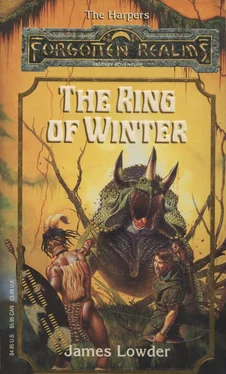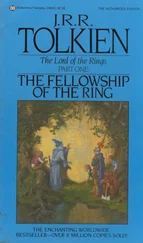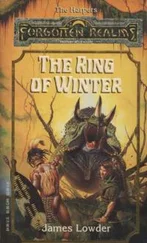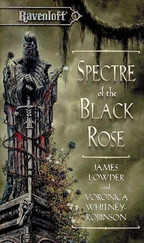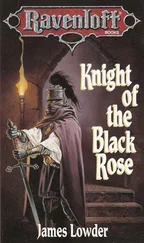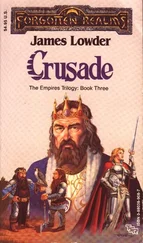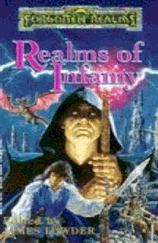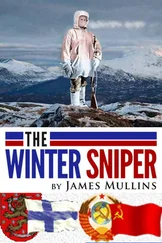James Lowder - The Ring of Winter
Здесь есть возможность читать онлайн «James Lowder - The Ring of Winter» весь текст электронной книги совершенно бесплатно (целиком полную версию без сокращений). В некоторых случаях можно слушать аудио, скачать через торрент в формате fb2 и присутствует краткое содержание. Жанр: Фэнтези, на английском языке. Описание произведения, (предисловие) а так же отзывы посетителей доступны на портале библиотеки ЛибКат.
- Название:The Ring of Winter
- Автор:
- Жанр:
- Год:неизвестен
- ISBN:нет данных
- Рейтинг книги:3 / 5. Голосов: 1
-
Избранное:Добавить в избранное
- Отзывы:
-
Ваша оценка:
- 60
- 1
- 2
- 3
- 4
- 5
The Ring of Winter: краткое содержание, описание и аннотация
Предлагаем к чтению аннотацию, описание, краткое содержание или предисловие (зависит от того, что написал сам автор книги «The Ring of Winter»). Если вы не нашли необходимую информацию о книге — напишите в комментариях, мы постараемся отыскать её.
The Ring of Winter — читать онлайн бесплатно полную книгу (весь текст) целиком
Ниже представлен текст книги, разбитый по страницам. Система сохранения места последней прочитанной страницы, позволяет с удобством читать онлайн бесплатно книгу «The Ring of Winter», без необходимости каждый раз заново искать на чём Вы остановились. Поставьте закладку, и сможете в любой момент перейти на страницу, на которой закончили чтение.
Интервал:
Закладка:
For the whole day, they followed a well-trodden path, where the vines and undergrowth had been chopped back or crushed underfoot by the local tribesmen. The few natives they passed on the road went silently on their way; the Tabaxi had seen such expeditions before-hunters of treasure or monsters or fame. Such parties offered little threat to the well-armed natives and were rarely interested in trading on fair terms. Artus didn't blame them for their silence, not when ships like the Narwhal scoured the coast on behalf of operations like the Refuge Bay Trading Company.
The jungle itself was lush and ominous. Creatures called to one another or warned others off with shrieked claims of territory. The cries were sometimes low and rumbling, sometimes high and piercing. It often proved easier to locate an animal by sound or scent than by sight, so thick was the vegetation.
In the high canopy, dark shapes sailed gracefully from branch to branch, tree to tree. Once, Artus saw a child-sized ape, its dark face ringed by a wild frill of white and yellow fur. The creature hung over the road, suspended from a branch by one impossibly long arm. As the company approached, it bared blood-red fangs and snarled. This was only so much show, for it soon fled higher into the tangle of vines and branches. Artus noted with awe that the ape's back was covered with bristling spines.
The heat drained the life from the party like a massive leech. Artus was hit hardest, though he found unexpected relief in the tunic Theron had left for him. The hooded garment proved to be woven of some magical thread. It kept his body cool and remained unsodden by sweat.
So it went, with the trail becoming more and more overgrown, more and more difficult as they traveled. As dusk called a halt to their sixth tedious day on the winding trail, they set up camp at a crossroads, drawing the tents and foodstuffs from the fifty-pound loads each bearer carried. The cost of the supplies and the wages for Judar and the bearers had taken what little money Artus had left. As the explorer watched the freed slaves struggle with the heavy burdens, he wondered if one day he might be working at the port to earn his way back to Cormyr. More likely, it he failed in this venture, he would be dead. If he succeeded and the ring was half as powerful as the legends told, he'd have no need of a boat to carry him back home. Some claimed the ring gave a man the ability to fly. Others said it had been enchanted in such a way that its wearer need only wish to be someplace to go there.
Artus had managed to keep to himself for much of the trip, but it proved impossible to avoid Judar that evening. The guide came to him as soon as the meal was finished and the watch set. "You are not a talkative man," Judar observed, more a question than a statement.
Quietly, Artus ran his dagger along a sharpening stone. The light from the gem in its grip cast long shadows across his face, making him look quite dangerous. "I just don't have anything to say to you, Judar."
The guide pursed his lips. "I… I have heard about the death of your friend," he began tentatively. "I am sorry. I just lost my brother, so I know what you feel."
"Perhaps." Again Artus scraped the blade along the stone. "We'll be at Kitcher's Folly by tomorrow night, if I read the map right."
"If we keep up this pace, we will have time to make camp at the statue before the sun sets."
"And the trail ends there?"
Judar paused. "You know it does, Master Cimber. The map says so." His expression darkened. "I know you do not trust me. A man who has assassins of ice trying to take his life should trust no one." To Artus's suspicious look, the guide replied, "The bearers told me about it. Don't think I could have been in camp a day without hearing of such fantastic things."
"You're right. I don't trust you," Artus warned. "But if you can figure that out, you should be wise enough to leave me alone."
Judar abruptly stood. "When the trail ends, you will need to trust me, Master Cimber." He laughed coarsely, eyes flashing in the firelight. "I do not mean to mock, but you will get nowhere in the jungle without trust."
Artus watched as the guide went back to his tent. My first impression was right, he decided. There's definitely something dangerous about him.
A swarm of finger-long mosquitoes settled over Artus, and he used the hood of his cloak to scatter them. He retreated from the night, dagger and sharpening stone in hand, for the refuge of his tent. The netting kept the larger insects out, but, as always, a small army of pests had invaded the tent in his absence. He killed a few, which sent the others scrambling for the doorflap.
For much of that night and all the next day, Artus pondered his dilemma. With Kaverin and the cult after the Ring of Winter-for there could be no other reason for their presence in Chult-he could trust no one. Neither could he accept the story that Kaverin was dead. The stone-handed murderer had escaped greater threats than goblin cannibals before. He was crafty and resourceful-resourceful enough to plant a spy in Artus's expedition, just as he had set the elven first mate aboard the Narwhal against the explorer.
Yet the guide was right in one thing: Artus would need someone to help him navigate through the jungle. No tribesman had passed them in two days, and the trail had all but vanished beneath a carpet of twisting vines and decaying leaves. The canopy had closed completely overhead, plunging the expedition into a twilight broken only infrequently by slants of pale sunlight. They had passed beyond the lands traveled by any but the very brave or the very foolish.
Artus found himself checking their heading more and more with his dagger. The centaurs of Tribe Pastilar had not only enchanted the weapon to give off a perpetual light, but it could also be used as a compass. By holding his dagger flat in his palm and speaking the centaur chieftain's name, the blade pointed due north. The dagger also allowed him to control spiders-a very real danger in the forest where the centaurs dwelled-but Artus had only had cause to use that particular enchantment once, in the aptly named Spiderhaunt Woods.
"We are at the end of the trail," Judar shouted from the front of the line, startling Artus out of his reverie.
At a word from the explorer, the bearers lowered their packs to the ground. They sat as one, silently rubbing sore muscles. Up ahead, the narrow trail opened onto a weed-choked clearing. In its center, bathed in the light of the dying sun, stood Kitcher's Folly.
The statue was a twelve-foot-high bust of Sir Ilyber Kitcher, an explorer from Scardale who had come to Chult a few hundred years ago. Decades of rain and sun had dulled the features, but enough of the face remained for Artus to see what a sour-looking sort Kitcher had been. His wide eyes looked sternly out from under bushy brows. A drooping mustache hung over a suitably grim mouth, lips drawn into a thin line of resolve.
"So this is the infamous Kitcher's Folly," Artus whispered. He ran a hand along the statue's base, over the dulled inscriptions carved into the stone.
Armed with limited supplies and even more limited wits, Sir Ilyber Kitcher had decided to traverse the unmapped land of Chult from east to west, starting in a small port he'd named after his rich Uncle Castigliar. At the sites of notable discoveries and battles, Kitcher planned to erect monuments to his bravery and fortitude. His funds being nowhere near as restricted as his other assets-thanks largely to Uncle Castigliar-the statues were to be of the magical variety. Upon a traveler's mere request, they would recite the tale of Kitcher's glorious victory, as well as provide useful information about what local fauna to eat, which animals made the best trophies, and so on.
Only one statue had been erected in Kitcher's name. The intrepid explorer had blundered upon a nasty conflict between two warring Tabaxi factions. Instead of skirting the battle, he ordered a mage in his party to draw the attention of the chiefs. He would end this petty bickering, as was his duty as a civilized man. Needless to say, the only thing the magical fireworks attracted was a rain of spears and arrows from both armies. The Tabaxi had miraculously lost track of their own argument in the face of this new and obviously powerful adversary.
Читать дальшеИнтервал:
Закладка:
Похожие книги на «The Ring of Winter»
Представляем Вашему вниманию похожие книги на «The Ring of Winter» списком для выбора. Мы отобрали схожую по названию и смыслу литературу в надежде предоставить читателям больше вариантов отыскать новые, интересные, ещё непрочитанные произведения.
Обсуждение, отзывы о книге «The Ring of Winter» и просто собственные мнения читателей. Оставьте ваши комментарии, напишите, что Вы думаете о произведении, его смысле или главных героях. Укажите что конкретно понравилось, а что нет, и почему Вы так считаете.
